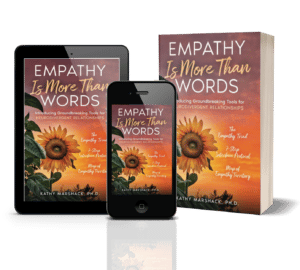As more adults are being diagnosed with Asperger Syndrome (AS), mental health professionals are learning that one of the most handicapping problems faced by these adults occurs in their interpersonal relationships. The primary reason that adults with Asperger Syndrome have poor interpersonal relationships is that they have underdeveloped social skills, the major one being empathy. The way the spouse of the Asperger Syndrome partner often copes with this lack of empathy is to become codependent.
Codependence is defined as a state of mind where you put your needs and dreams aside in order to help the other person have a life. Kindness is doing these kinds of things sometimes and having a balance of give and take in a relationship. In a codependent relationship, no matter how much you give the other person does not return the favor. Yet you keep on giving and getting more fatigued, frustrated and resentful.
Codependence leads to micromanaging the AS members of the family. Because the AS members are doing everything they can to function in other areas of life, such as their job, everything else gets dropped. The codependent person picks up what is dropped as well as managing his or her own life.
1. The codependent arranges all of the social life.
2. Or the codependent is fully responsible for childcare and home management.
3. Or the codependent covers for his spouses social faux pas.
4. Or the codependent lays out her husband’s clothes because he always mismatches things.
5. Or the codependent pays for extra childcare or dry cleaning because his wife is so overloaded.
6. Or the codependent works overtime or a second job because his spouse cannot earn enough money or keep a steady job.
7. Or the codependent takes a job for health benefits because her spouse is self-employed in lieu of unsteady employment.
8. Or the codependent stays up late to type the teenager’s paper so that the kid won’t turn in homework late again.
The codependent experiences burnout eventually. To get beyond codependency, you need to explore self-care. Put your needs first and see to them first. Since your AS spouse or child loves you but has no idea how you tick, make your beliefs and needs known in concrete ways.
Educate yourself as much as possible about the relationship issues of AS so that you can spot the symptoms of dysfunction early and correct the problems. Use books, tapes, and psychotherapy. You can also use a support group to replenish your energy because this is a difficult task – if you live in Portland/Vancouver check out the group Asperger Syndrome: Partners & Family of Adults with ASD.
To learn more about AS and codependency in relationships visit my Asperger & Marriage page or take a look at my book – Life with a Partner or Spouse with Asperger Syndrome: Going over the Edge? Practical Steps to Saving You and Your Relationship.



